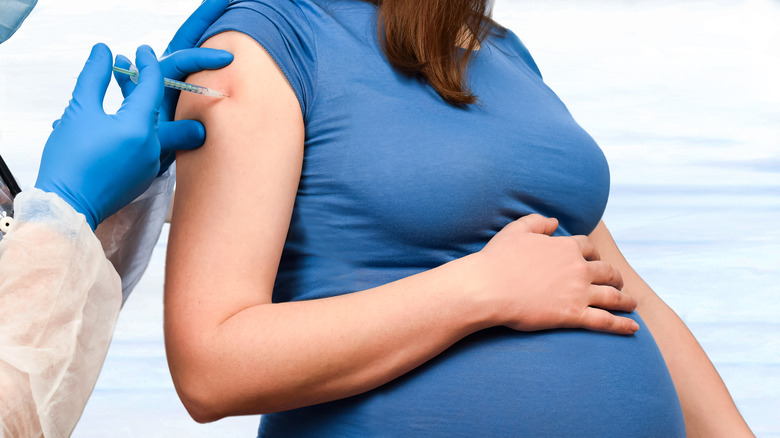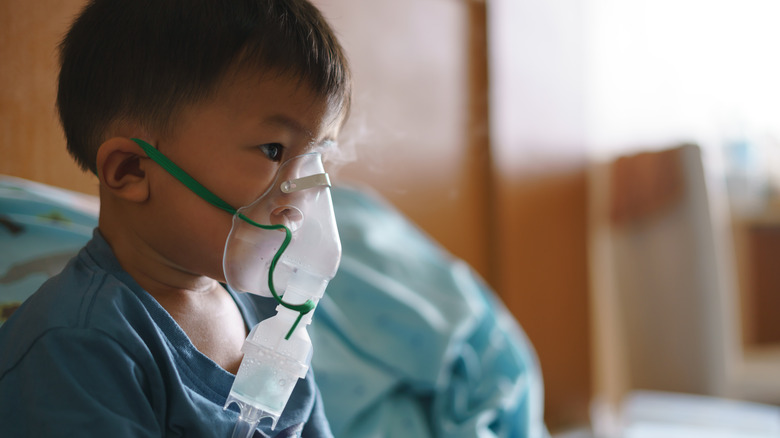A Trial RSV Vaccine For Pregnant Women Offers Promising Results In Infants
A new trial vaccine shows promise for prospective mothers worried about their newborns developing RSV. In a press release on Tuesday, Pfizer shared that their experimental vaccine for pregnant women provided protection against RSV for newborns for a minimum of six months (via NBC News). A phase 3 study found that the Pfizer vaccine was roughly 82% effective against severe respiratory syncytial virus (RSV) in babies born to vaccinated women in the first 90 days of life. Through the first six months of life, the vaccine was also roughly 70% effective against serious illnesses. The trial involved 7,400 pregnant women.
The results of the trial have not been scientifically reviewed, but Pfizer has plans to submit the data to the Food and Drug Administration by the end of 2022. Because RSV can be so deadly in newborns, the results of this vaccine are promising. It was noted that babies may need an additional RSV vaccine after the effects of this one wear off, but being born with protection against RSV will provide relief for both babies and moms.
What is RSV?
Respiratory syncytial virus, or RSV, is the most common cause of bronchiolitis (inflammation of the small airways in the lungs) and pneumonia in infants and young children (via Mayo Clinic). It can be very serious, especially for babies under six months old. Most people with RSV have mild cold symptoms that last for a week or two. But some people, especially infants and young children, can develop more severe illness, including pneumonia. Pneumonia caused by RSV can be serious and sometimes life-threatening.
There is no specific treatment for RSV, but there are steps that can be taken to help relieve symptoms and make your child more comfortable. If your child has a more severe case of RSV, they may need to be hospitalized. RSV is spread through contact with respiratory secretions, such as mucus or saliva, from an infected person. It can also be spread through contact with objects or surfaces that have been contaminated with the virus. You can help prevent the spread of RSV by washing your hands often and avoiding close contact with people who are sick. If your child is sick, keep them at home and away from other children to help prevent the spread of the virus.


